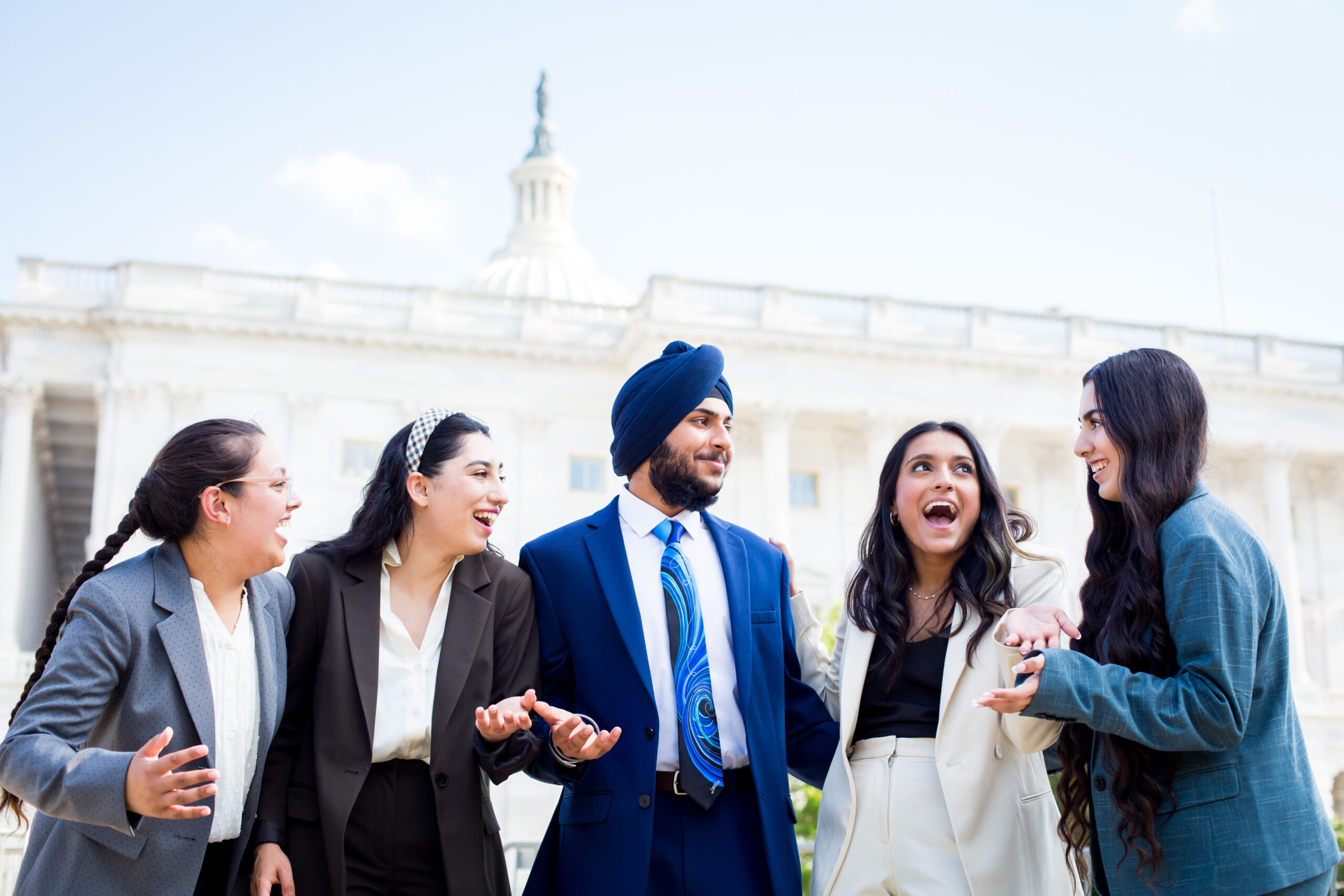He was denied entry for wearing a turban By Lisa Petrillo UNION-TRIBUNE STAFF WRITER February 9, 2007 A turban-wearing Rancho Bernardo medical school student claims he was discriminated against when he was turned away from a popular college hangout. The bar in Orange County has a “no hat” rule. But Sanjum Paul Singh Samagh, an American-born Sikh, said he tried to explain to the bar owner that his black turban was a centuries-old religious symbol, not a fashion statement. Samagh, a Stanford University graduate, has now joined forces with a national civil rights organization demanding a public apology and a policy change from the Pierce Street Annex bar in Costa Mesa. “It may be a small thing, just getting into a bar to have a beer with my classmates, but it’s the tiny things in life that add up,” Samagh said. “If I don’t fight the fight, then what happens the next time?” His classmates at the University of California Irvine Medical School have declared a boycott against the bar. Pierce Street Annex officials did not respond to media questions about their policy or the incident. It began Jan. 25, a Thursday, generally a popular night of cut-rate drinks at the bar. Samagh, 24, said he and about 20 classmates headed to the Annex to celebrate a birthday and the end of exams for the first-year medical students. Samagh said he reacted with shock when the bar owner barred his entry, telling him that headgear was headgear, religious or not. “He kept saying he was a lawyer and he knew his rights, and I tried to talk to him, one professional to another, but he was adamant,” Samagh said. He and his parents, Pam and Paul Samagh of Rancho Bernardo, said they have joined forces with the Washington, D.C.-based Sikh American Legal Defense and Education Fund, formally requesting an apology. They are pursuing the action, they say, to raise awareness of acts of discrimination against Sikhs. California is home to one of the largest Sikh populations in the United States, numbering more than 150,000 people, according to the Sikh organization. The Samagh family has been active in Poway’s Sikh temple, where an official there said that blatant acts of discrimination against local Sikhs have been rare. Paul Samagh said the biggest problem he experienced living in San Diego County was people mistaking him for a Muslim, because of the turban and beard that he and most Sikhs wear. It became dangerous for Sikhs for a brief period after the Sept. 11, 2001, terrorism attacks, he said. “People . . . threatened to kill me more than once,” said Paul Samagh, who owns gas stations now but ran a gourmet food store in Poway at the time. “I just stopped going to work after 9/11.” The Samagh family said they never experienced outright discrimination while they raised their children in San Diego’s North County. Their son was class president, played basketball and was on Rancho Bernardo High School’s varsity tennis team – always wearing the turban. He also was senior class valedictorian. Nationally, the Sikh American Defense group said they encounter anti-Sikh bias incidents at least a few times a month, although generally the problems can be resolved quickly. Recently, a Sikh youth was turned down as a volunteer for a local police department in Northern California because of a no-beard policy, said Rajbir Singh Datta of the Sikh American Defense group, who successfully fought the rule. “You have to pursue every single one of these cases,” Datta said. “What we want to do is have a society where Sikhs are not looked upon as foreigners. They are part of the fabric of the diversity of the United States.”
